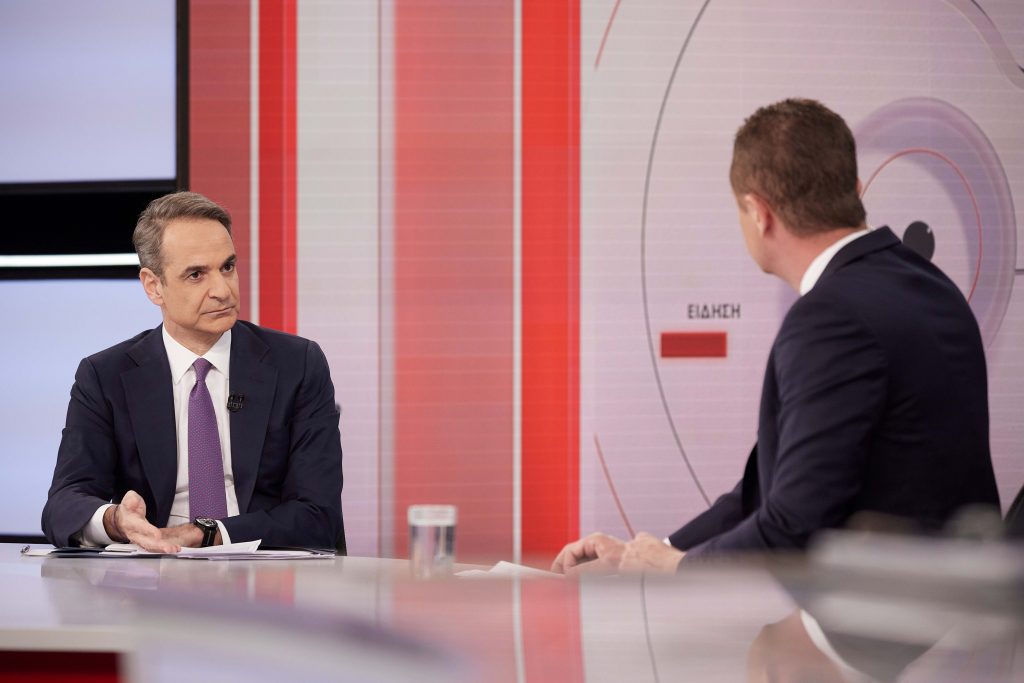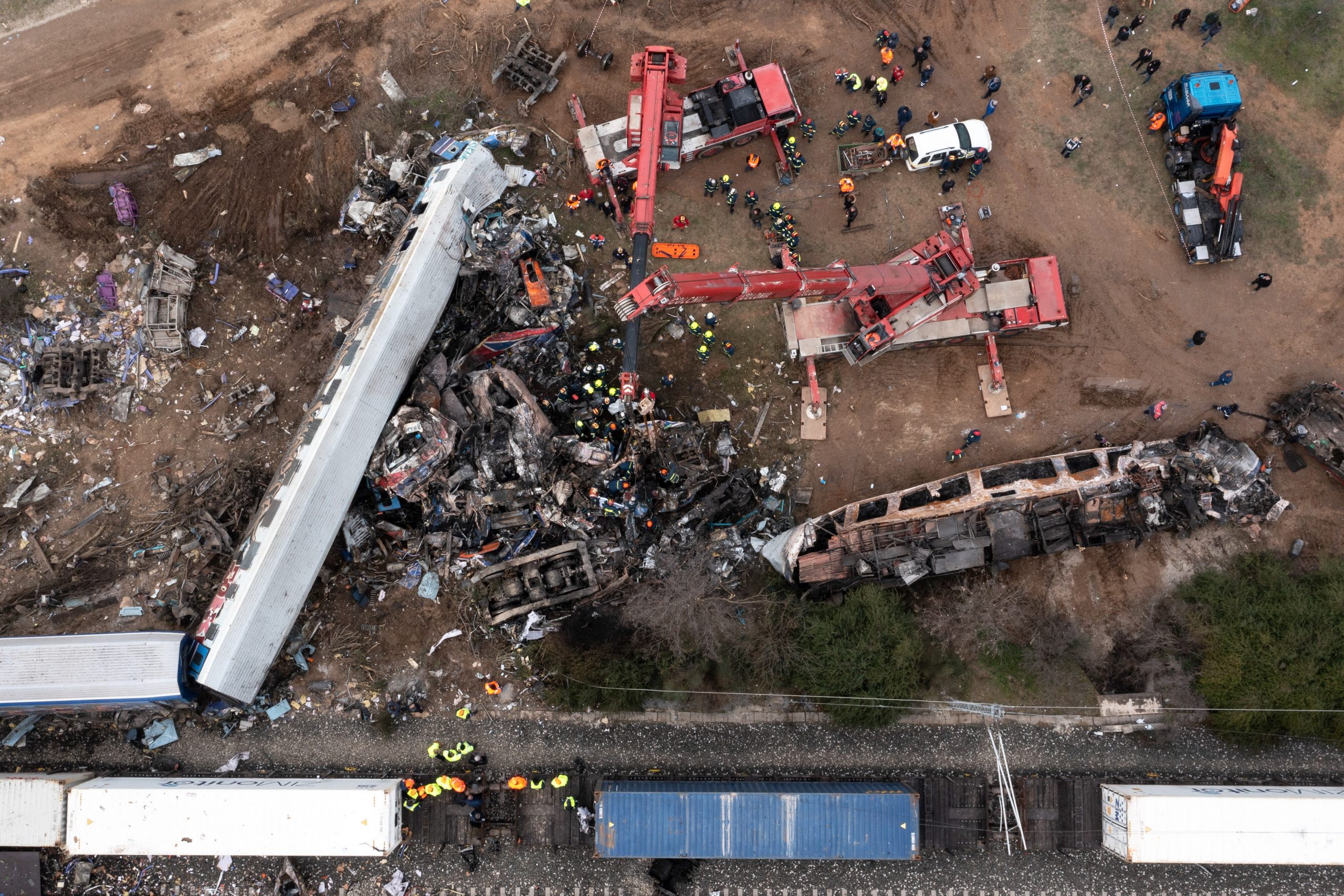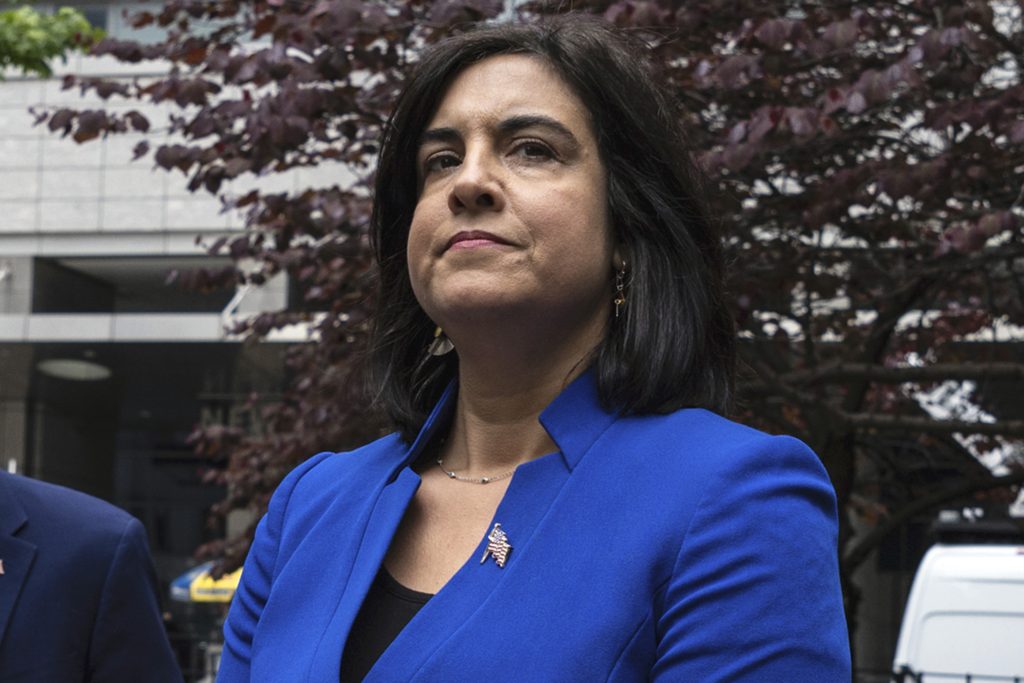The Hellenic Train company has released another statement implicitly denying allegations that their trains were carrying flammable cargo in the Tempi crash, as fallout over new revelations into the train disaster continue to reverberate through Greece.
On January 20 an independent expert report alleged that 10 tons of flammable liquids were present on the freight train involved in the Tempi crash, leading to the deaths of several passengers in flames after the collision. Previously unheard emergency phone calls were also made public, in which victims can be heard screaming for help in the moments after the train crash, crying that they do not have enough oxygen. The government and train companies have repeatedly denied all allegations regarding flammable liquids on the trains.
On Sunday tens of thousands of Greeks gathered in protests across the country, demanding justice for the 57 victims of the tragedy, accusing the government of a cover-up and demanding further investigations.
On Wednesday the Greek Prime Minister Kyriakos Mitsotakis gave a television interview during which he stated it was “a possibility” that the freight train carried a “suspicious” cargo, in a complete about-face from his previous statements.
Today the Hellenic Train company released a statement regarding the allegations of flammable cargo:
With a view to fully clarifying the tragedy in Tempi, Hellenic Train reiterates its firm commitment to cooperate from the very first moment, providing all available information with complete transparency and accountability to all competent authorities.
With respect to the request of the victims’ families and society for the truth, the company continues to actively contribute to the investigation of the case.
The company has already handed over all the required data to the competent authorities and has responded to all relevant queries. The issue of the cargo of freight train 63503 has already been clarified in the context of Question 2506/03.03.2023, submitted to the Greek Parliament.
What was the train carrying?
The train consisted of 13 wagons, of which:
The first three, which were derailed, were carrying flat iron laminated products (sheet metal).
The remaining ten contained containers with:
– Foodstuffs (4th – 7th car)
– Beer (wagons 8 – 9)
– Iron wires (10th – 11th car)
– Empty containers (12th – 13th wagon)
According to the records kept by our company and as declared by the customer/carrier, the contents of the sealed containers, as required by national and international regulations for the carriage of goods by rail, have been recorded in detail on the composition sheet and made available to the authorities.
Hellenic Train will continue to cooperate with the competent authorities in a transparent and responsible manner.
No official government investigation has looked into the cause of the blaze that broke out after the crash. Independent investigators found evidence of a flammable substance was found in seven different locations at the crash site, yet authorities did not pursue an inquiry. Additionally, CCTV footage of the freight train departing Thessaloniki was never subpoenaed and was eventually overwritten. The crash site was also bulldozed just days after the accident, raising further concerns about the investigation.
The recent revelations about the flammable liquids on board the trains, as well as recordings of the emergency phone calls made by passengers in the moments after the crash suffocating amidst flames, has further fueled accusations of cover-up and neglections of accountability.
Investigations have been conducted into other aspects of the Tempi train crash, though many have been criticized as inadequate, and criminal proceedings for government officials have not been pursued.
Three station managers and a supervisor were charged with endangering rail safety leading to loss of life, but their trial has yet to conclude. A Tempi Train Collision Commission of Inquiry published its findings in April 2023, blaming infrastructure, individuals, and organizations. However, no criminal investigation followed. In December 2023, the European Public Prosecutor’s Office brought charges against 23 suspects, including 18 government officials, but the Greek government refused to pursue an investigation.
On March 11, 2024, a cross-party parliamentary committee concluded its investigation into the causes of the crash. The ruling New Democracy party argued that had railway regulations been strictly followed, the accident would not have occurred. Opposition parties and victims’ families criticized the inquiry as a “cover-up” that ignored government responsibility, with the families’ association calling it “hasty and sloppy.”
This week the New Democracy government spokesperson stated that investigations by the Greek judiciary into the crash had entered entered the main inquiries, and could not be rushed or interfered with. The ruling New Democracy party has acquiesced to formal requests from left-wing opposition parties to again debate the rail tragedy in parliament.







